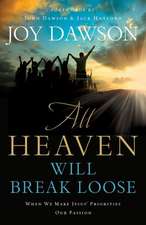The Gospel According to the Novelist: Religious Scripture and Contemporary Fiction: New Directions in Religion and Literature
Autor Dr Magdalena Maczynskaen Limba Engleză Paperback – 22 mar 2017
| Toate formatele și edițiile | Preț | Express |
|---|---|---|
| Paperback (1) | 254.02 lei 6-8 săpt. | |
| Bloomsbury Publishing – 22 mar 2017 | 254.02 lei 6-8 săpt. | |
| Hardback (1) | 593.53 lei 6-8 săpt. | |
| Bloomsbury Publishing – 26 aug 2015 | 593.53 lei 6-8 săpt. |
Din seria New Directions in Religion and Literature
- 21%
 Preț: 215.96 lei
Preț: 215.96 lei - 30%
 Preț: 509.20 lei
Preț: 509.20 lei -
 Preț: 176.86 lei
Preț: 176.86 lei - 24%
 Preț: 195.56 lei
Preț: 195.56 lei -
 Preț: 192.27 lei
Preț: 192.27 lei - 30%
 Preț: 510.42 lei
Preț: 510.42 lei - 30%
 Preț: 510.03 lei
Preț: 510.03 lei - 30%
 Preț: 509.86 lei
Preț: 509.86 lei - 14%
 Preț: 175.91 lei
Preț: 175.91 lei - 30%
 Preț: 566.83 lei
Preț: 566.83 lei - 23%
 Preț: 190.87 lei
Preț: 190.87 lei - 21%
 Preț: 217.35 lei
Preț: 217.35 lei - 24%
 Preț: 195.37 lei
Preț: 195.37 lei - 23%
 Preț: 254.55 lei
Preț: 254.55 lei - 24%
 Preț: 188.55 lei
Preț: 188.55 lei - 14%
 Preț: 176.44 lei
Preț: 176.44 lei - 12%
 Preț: 215.88 lei
Preț: 215.88 lei - 14%
 Preț: 196.96 lei
Preț: 196.96 lei - 23%
 Preț: 192.55 lei
Preț: 192.55 lei - 14%
 Preț: 183.70 lei
Preț: 183.70 lei - 23%
 Preț: 191.38 lei
Preț: 191.38 lei - 14%
 Preț: 176.86 lei
Preț: 176.86 lei - 14%
 Preț: 164.59 lei
Preț: 164.59 lei - 24%
 Preț: 190.33 lei
Preț: 190.33 lei - 22%
 Preț: 596.98 lei
Preț: 596.98 lei - 30%
 Preț: 508.95 lei
Preț: 508.95 lei - 30%
 Preț: 540.54 lei
Preț: 540.54 lei -
 Preț: 176.44 lei
Preț: 176.44 lei - 23%
 Preț: 254.55 lei
Preț: 254.55 lei - 23%
 Preț: 235.00 lei
Preț: 235.00 lei
Preț: 254.02 lei
Preț vechi: 329.37 lei
-23% Nou
Puncte Express: 381
Preț estimativ în valută:
48.61€ • 52.79$ • 40.83£
48.61€ • 52.79$ • 40.83£
Carte tipărită la comandă
Livrare economică 22 aprilie-06 mai
Preluare comenzi: 021 569.72.76
Specificații
ISBN-13: 9781350028449
ISBN-10: 1350028444
Pagini: 160
Dimensiuni: 156 x 234 x 16 mm
Greutate: 0.19 kg
Ediția:NIPPOD
Editura: Bloomsbury Publishing
Colecția Bloomsbury Academic
Seria New Directions in Religion and Literature
Locul publicării:London, United Kingdom
ISBN-10: 1350028444
Pagini: 160
Dimensiuni: 156 x 234 x 16 mm
Greutate: 0.19 kg
Ediția:NIPPOD
Editura: Bloomsbury Publishing
Colecția Bloomsbury Academic
Seria New Directions in Religion and Literature
Locul publicării:London, United Kingdom
Caracteristici
The first full rigorous critical exploration of the rewriting of Christian texts in contemporary fiction.
Notă biografică
Magdalena Maczynska is Associate Professor at Marymount Manhattan College, USA
Cuprins
Introduction 1. Sly Evangelists: historiographic meta-gospels 2. Other Voices: alternative point-of view gospels 3. Other Realities: science fictional and metamorphic gospels 4. Inquisitive Scholars: philological and archaeological gospels Conclusion Bibliography Index
Recenzii
Maczynska provides an impressive survey of works of biblical reinvention from a wide range of novelists ... The strength of this study is in the breadth of its coverage, and its argument that the Gospel stories are important cultural artefacts regardless of religious faith.
Maczynska (Marymount Manhattan College) offers a valuable overview of mostly contemporary novels that she calls scriptural metafictions-i.e., works that overturn traditional interpretations of scriptural stories in order to transform them in the same way that Salman Rushdie's Satanic Verses offers fictional revisions of the Muslim canon. For example, Maczynska is compelling in arguing that José Saramago's The Gospel according to Jesus Christ and Philip Pullman's The Good Man Jesus and the Scoundrel Christ reject the resurrection and the good news, and reconsider the Christian canon from a postmodern point of view. 'Rarely has impiety appeared so respectable,' Maczynska writes. She considers multiple other voices producing 'alternative point-of-view gospels,' works such as Michele Roberts's The Secret Gospel of Mary Magdalene; Colm Toibin's The Testament of Mary; Christopher Moore's Lamb: The Gospel according to Biff, Christ's Childhood Pal; Nino Ricci's Testament; Gore Vidal's Live from Golgotha (and various other various science-fiction treatments); and James C. Carse's The Gospel of the Beloved Disciple, which offers multiple interpretations of Jesus. All of these authors consider scripture a construct open to bold reimagining, and Maczynska concludes that their work reveals a postmodern understanding of the slipperiness of language and the 'power structures that shape every act of writing and reading.' Summing Up: Highly recommended. Upper-division undergraduates through faculty.
Maczynska (Marymount Manhattan College) offers a valuable overview of mostly contemporary novels that she calls scriptural metafictions-i.e., works that overturn traditional interpretations of scriptural stories in order to transform them in the same way that Salman Rushdie's Satanic Verses offers fictional revisions of the Muslim canon. For example, Maczynska is compelling in arguing that José Saramago's The Gospel according to Jesus Christ and Philip Pullman's The Good Man Jesus and the Scoundrel Christ reject the resurrection and the good news, and reconsider the Christian canon from a postmodern point of view. 'Rarely has impiety appeared so respectable,' Maczynska writes. She considers multiple other voices producing 'alternative point-of-view gospels,' works such as Michele Roberts's The Secret Gospel of Mary Magdalene; Colm Toibin's The Testament of Mary; Christopher Moore's Lamb: The Gospel according to Biff, Christ's Childhood Pal; Nino Ricci's Testament; Gore Vidal's Live from Golgotha (and various other various science-fiction treatments); and James C. Carse's The Gospel of the Beloved Disciple, which offers multiple interpretations of Jesus. All of these authors consider scripture a construct open to bold reimagining, and Maczynska concludes that their work reveals a postmodern understanding of the slipperiness of language and the 'power structures that shape every act of writing and reading.' Summing Up: Highly recommended. Upper-division undergraduates through faculty.








